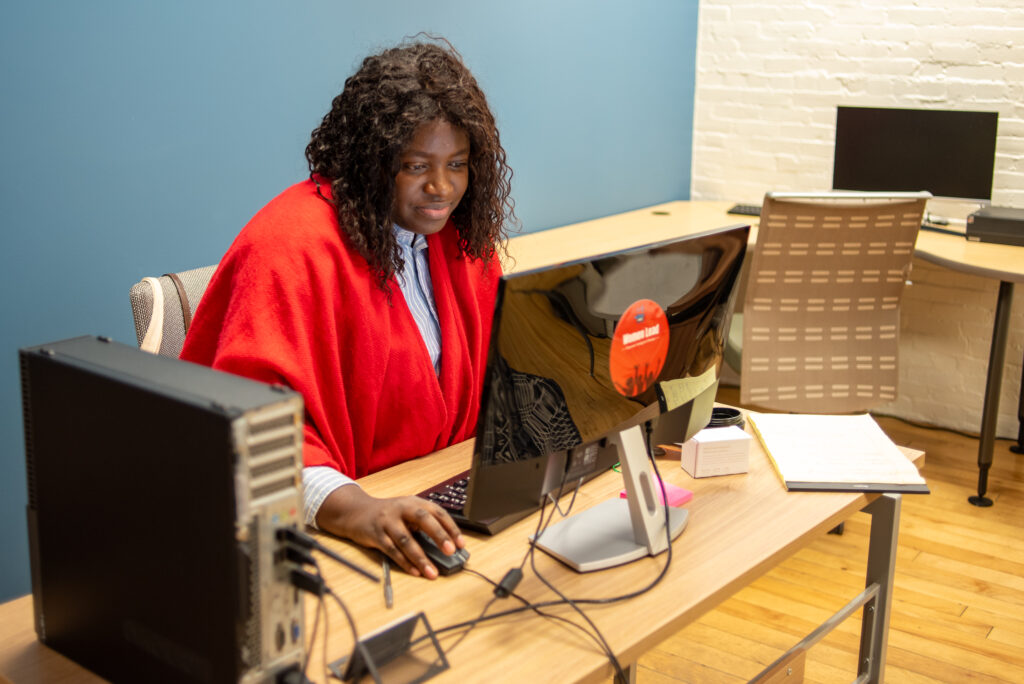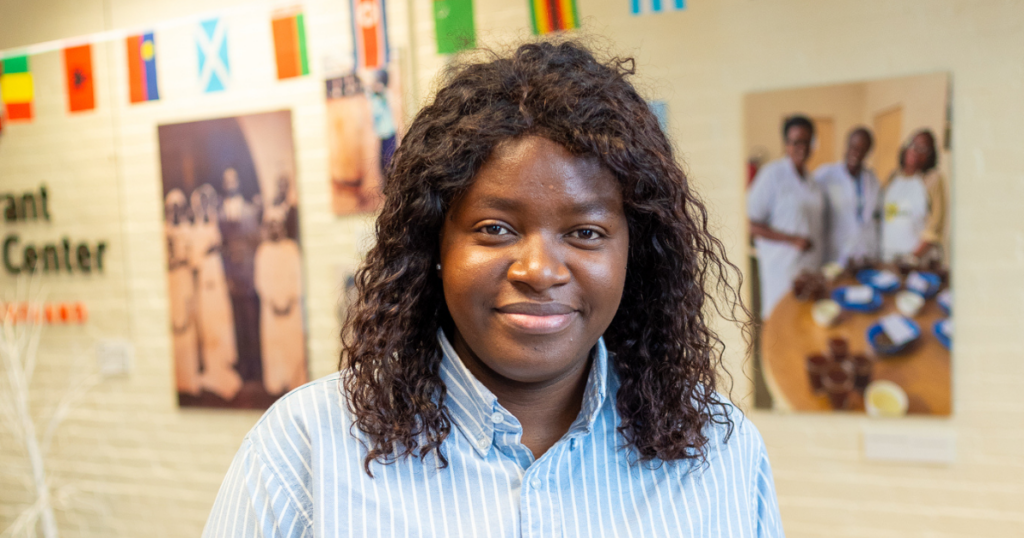Marcella shared her story as part of MECEP’s State of Working Maine 2023 report. Click here to read the full report.
Note: We are using a pseudonym to protect the storyteller’s privacy.
Marcella came to Maine two years ago from Angola and lives with her husband and children in Westbrook. She worked in customer relations at an oil and gas firm back in Angola, and now works as a client coordinator at the Greater Portland Immigrant Welcome Center, supporting integration for new Mainers.
My family and I came to Maine in 2021. We lived in a hotel for nine months. It was such a struggle to get an apartment. If you didn’t understand English, you would just give up. We got help from an organization called Greater Portland Family Promise. They helped us get a guarantor and helped us get housing. Once in our home I was able to help other New Mainers. I’d serve as a translator; I’d interpret for them. I still volunteer in churches and nonprofit organizations, making sure that people who are like me, who sound like me, and who are from my country are being taken care of. The way I was received when I first got here, I want to make sure I give back the same way to somebody else who needs it.
When I first arrived, there was help everywhere you turned. The progression between then and now – things have totally changed. Yes, there is still help available, but there aren’t as many resources as we had back then. New Mainers have double the dose of challenges now. It’s the housing. It’s not having childcare. It’s not having a work permit. Some people have to live on the street. There is no space in the shelter. It feels like you’ve been thrown into a fire. And even when you are allowed to work, it takes a toll on you because your benefits are cut off and there are bills piling up. You’re not really making enough money to make ends meet. You find yourself back in the same position when you weren’t able to provide for yourself.
The biggest problem for me right now is not being able to afford childcare. How do you pay $380 every week? That’s not affordable. I don’t even think any normal Mainer can afford it. I’ve got a 7-year-old, my son is turning 6 soon, and I’ve got an 8-month-old. It’s a lot. I’m trying to juggle having a successful career and being a mom.

The work permit situation needs to change. People are tired of being dependent on General Assistance. They want to work. They came from a background where they were workers. They made money. General Assistance is under so much stress because every other person here needs assistance. So how do we help them? We help them by minimizing the time they must wait to work and making sure that all these people who are willing to work are working.
If your English is good, you can work anywhere in Maine. We need to spread out the resources to other cities in Maine, making sure that whatever benefits we are offering here in Portland are being multiplied in other cities. The problem is that some cities don’t offer the same benefits that we do here in Portland. That’s the biggest hurdle. The second is that people don’t know what’s out there besides Portland. If we could reach out to the city counselors and mayors and say, “Listen, we have several new Mainers here that we would love to send to you. How can we make the transition easier for them and for you?” They have never given them the opportunity to discover other cities besides Portland. If that opportunity presents itself and there are resources in place to help them integrate, they will go.
The economy in Maine is going to thrive because there’s a need for this manpower. We have so many open jobs here in Maine, and we have people to fill them who don’t have work permits. Let’s find a way to solve that. Let’s find a way to say, “You know what? You’re here to support yourself. Here’s your work permit. Go and make your life.” People want a sense that financial stability means freedom. And right now, these people don’t have it.




